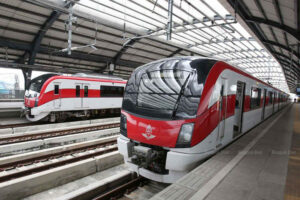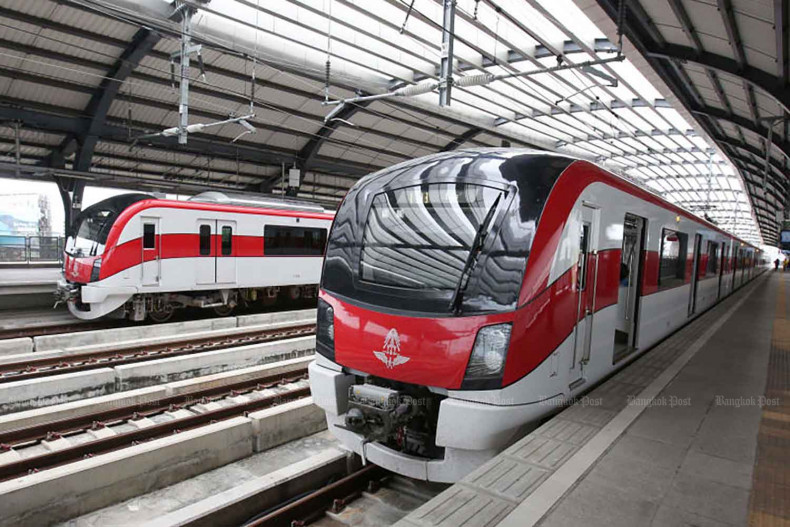 Design change prompts review of Bangkok’s Red Line electric train extension route
Design change prompts review of Bangkok’s Red Line electric train extension route
The board of the State Railway of Thailand (SRT) has ordered the rail agency to review the Red Line electric train extension project out of concern that a proposed design change might affect the high-speed Don Mueang, Suvarnabhumi and U-Tapao airport link.
SRT deputy governor Anan Phonimdang said the board has expressed concern the relocation of a train station on the 25.9km extension might pose obstacles to the high-speed train linking Bangkok to Rayong.
The focus is the planned relocation of Ratchawithee station, originally located on the side of Ban Ratchawithee, to the area where Ramathibodi Hospital is located, with a skywalk linking the station with the hospital.
The planned change of station location will place the Red Line extension project close to the high-speed rail system and will add 400 million baht to the estimated project cost of 44.15 billion baht.
“The board wants to know the reason for the design change in more detail and the result of talks with the private company [builder of the high-speed train system] because the information at hand is incomplete,” said Mr Anan.
He said the SRT will have to show what benefits the station change will bring and whether it will impact the high-speed rail system. The SRT is required to submit documents to the board as an assurance that no problems will arise later.
The matter is expected to be considered by the SRT’s board next month, he added.
Mr Anan also said competition for passengers between the two systems could be ruled out because the high-speed train system does not stop in the Ratchawithee area. If passengers wish to take the electric train, they will have to get off at Phaya Thai station and take the Red Line.
The Red Line electric train extension project, approved by the cabinet in July 2016, has made no substantial progress. The SRT is still adjusting the project design, and the station change will require a new environmental impact assessment (EIA).
Asia Era One, a CP Group-led consortium, will build the high-speed airport link. In 2018, it won the bidding to build the system worth 224.5 billion baht.
The project has been delayed due to several factors, including the fallout from the Covid-19 pandemic, which has led to negotiations over revising sections of the contract to ensure completion of the route.
Source: https://www.bangkokpost.com/thailand/general/2800448/design-change-prompts-review-of-red-line-route


